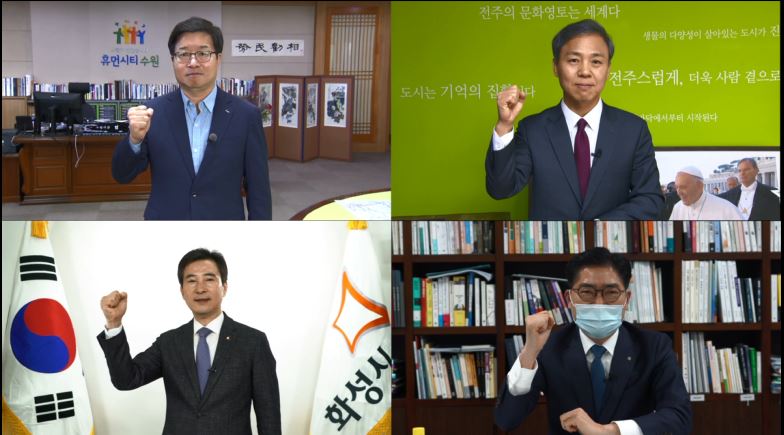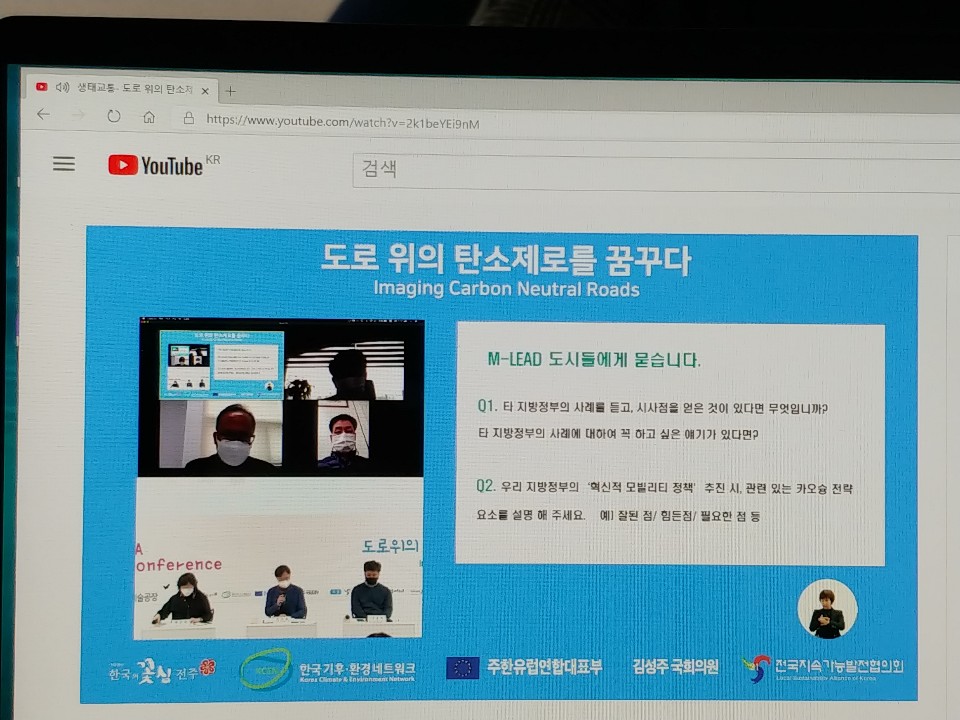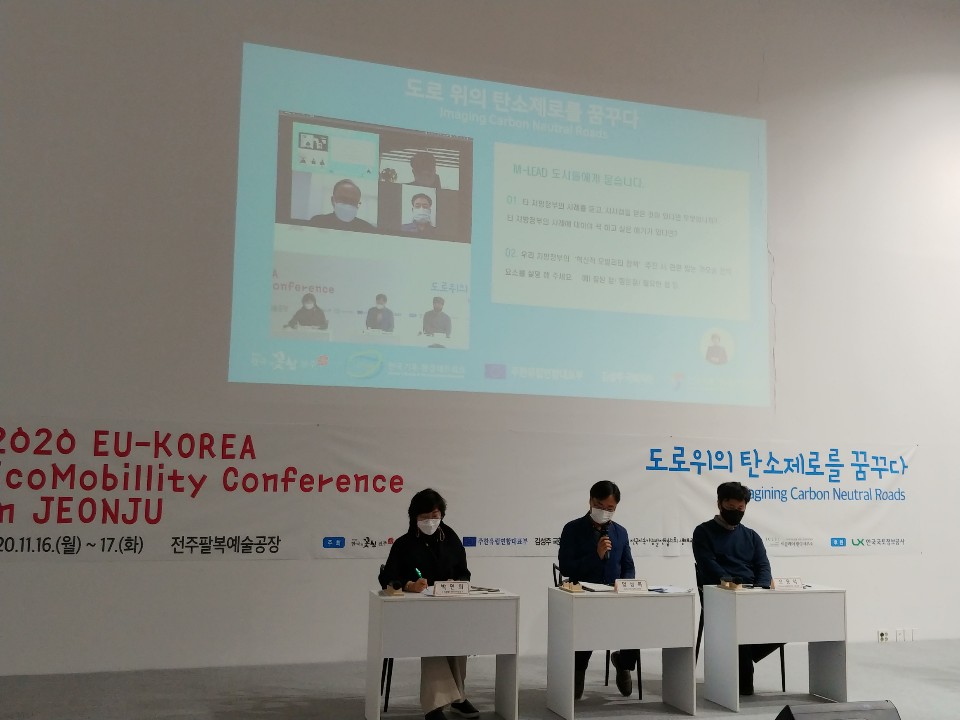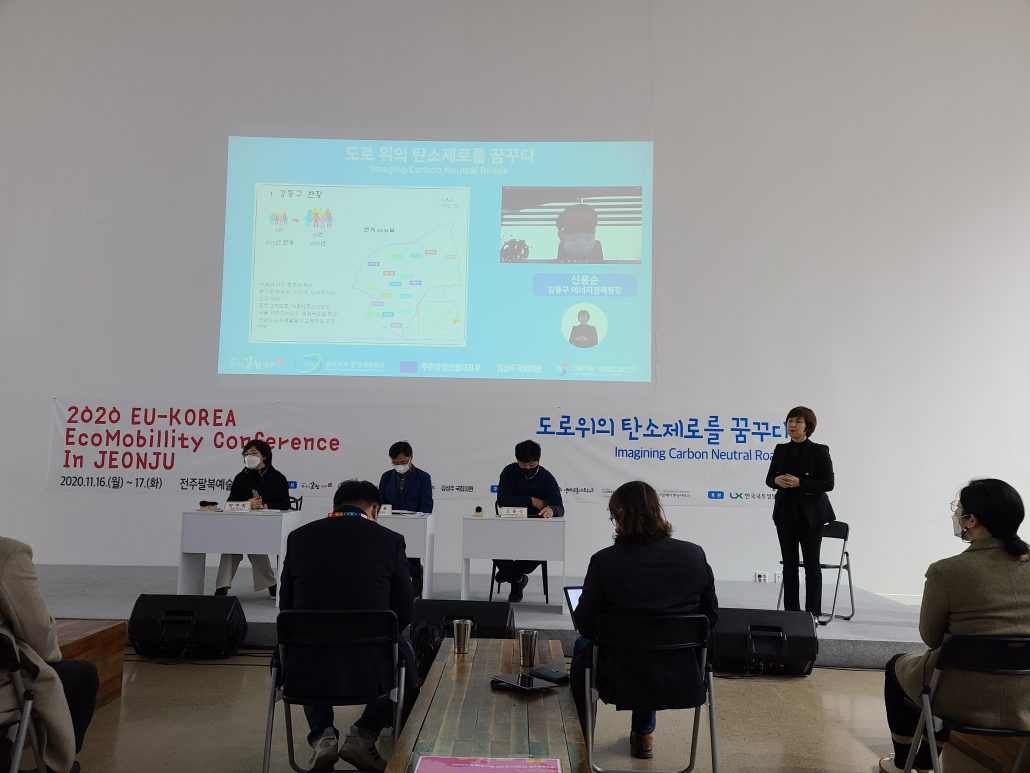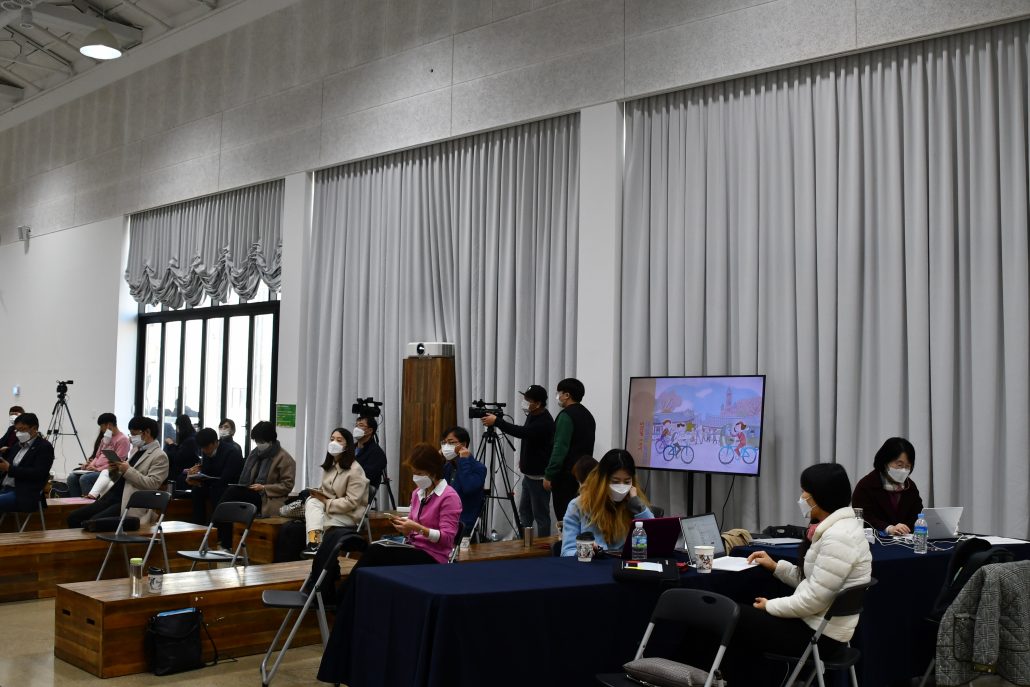Korea’s EcoMobility Cities celebrated M-LEAD Launch

Envisioning a new Daxi through EcoLogistics
December 14, 2020
AUTONOMY Digital 2020
December 15, 2020On 10 December 2020, the President of Korea officially announced the 2050 Korea Carbon Net-Zero Declaration and action has been unveiled. The government also released Korea Green New Deal in July 2020. According to these two, the mobility sector’s primary focus is developing and enlarging clean electric- and hydrogen-powered mobility systems for public and private-owned cars. Given that local governments mostly follow the central government’s policy stance, local mobility policies tend to focus on ‘vehicle’ rather than people-centered mobility.
M-LEAD (EcoMobility – LEading cities Action for sustainable Development) is launched to help ICLEI Korea member cities envision an EcoMobile city and achieve 2050 targets by considering what livable cities like to be. On 17 November 2020, a commemorative forum for the launch of M-LEAD led by ICLEI Korea was held at the Palbok Art Factory in Jeonju, as part of the ‘2020 Korea-EU EcoMobility Conference in Jeonjion “Imagining Carbon Zero Road.”
M-LEAD, led by ICLEI Korea, this city network aims to promote and disseminate EcoMobility policies of ICLEI Korean member cities and is a program run on voluntary participation. Commenced in April 2020, Suwon City, Jeonju City, Hwaseong City and Gangdong-gu district government of Seoul Metropolitan are the founding members.
The forum began with a video of the Mayors of the participating cities, followed by practitioners’ presentations and discussions. Jeonju City shared about the urban bus route reform project, while Hwaseong City shared about its free public transportation policy. Brussels was invited as a special international city to share about “Sustainable and Innovative Mobility Solution: Good Move”. During the discussion, Suwon city introduced its ‘Homaesil-dong Maesil-street pedestrian traffic Improvement project,’ and Gangdong-gu shared their ‘Personal Mobility Smart Station Operation Plan’ briefly. The main points are as follows:
According to Martin LeFrank, a Smart Transportation Manager at Brussels Transportation Bureau, ‘Good Move’ is a sustainable and innovative mobility solution in the Brussels-Capital Region. It has six visions based on ecomobility: to reduce the usage of privately owned cars; to strengthen the mobility service solutions and Mobility-as-a-Service; to manage the parking policies in line with the mobility vision driven by co-building with diverse local stakeholders. Good Move is not only a vision but also well-structured 50 tangible actions into six focuses. It showed Korean cities that how transport policy can be developed with initial consideration and mobility is no longer transport itself. It is a main factor of consisting of livable cities for Net Zero 2050.
Jeonju City: New bus routes were redeveloped through citizen roundtable to solve the problem of reducing bus users and wasted subsidies caused by inefficient bus routes. In the roundtable, three scenarios of bus routes were drawn initially and one of them, “Subway line-based routes” were finally chosen as the main base routes by vote. It will be developed with verification of bigdata research and will apply the upcoming 2021.
Suwon City: Homaesil Street is an area with a large amount of pedestrian traffic to and from school. It has been decided to reduce the road’s width to improve the pedestrian movement due to many obstacles and damages of the streets. The plan is to create a pleasant space for pedestrians to walk, such as creating a green area and preventing slipping and the city plans to expand it gradually.
Hwaseong City: Plans to implement free transportation, bus public service system, and electric and hydrogen bus conversion to achieve sustainable cities’ goals, strengthening urban competitiveness, enhancing citizens’ wellbeing and social values. Through the free transportation card, free transportation has been achieved up to the first stage, the ‘Children and Youth Under 18’ group and currently considering expanding the scope of support to the ‘Children Under 23 and Over 65’ group, the second stage in 2021.
Gangdong-gu: The city plans to build a station dedicated to personal mobility (PM) and install charging and storage facilities. Gangdong-gu conducted “E-kick-board safety education” first among municipal governments in Seoul and enacted the Gangdong-gu Seoul Metropolitan Government Ordinance on the Promotion of Safety Using Personal Mobility.
To participate in M-LEAD, cities must submit ‘innovative mobility policies’ to explore ways to learn, share and promote appropriate related EcoMobile activities. It plans to submit an activity report every year to share the status of implementation and develop joint and regional actions between cities.


